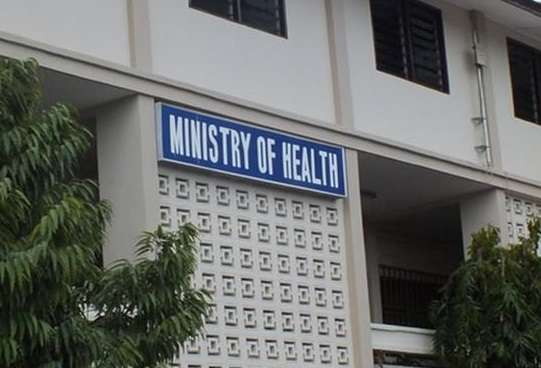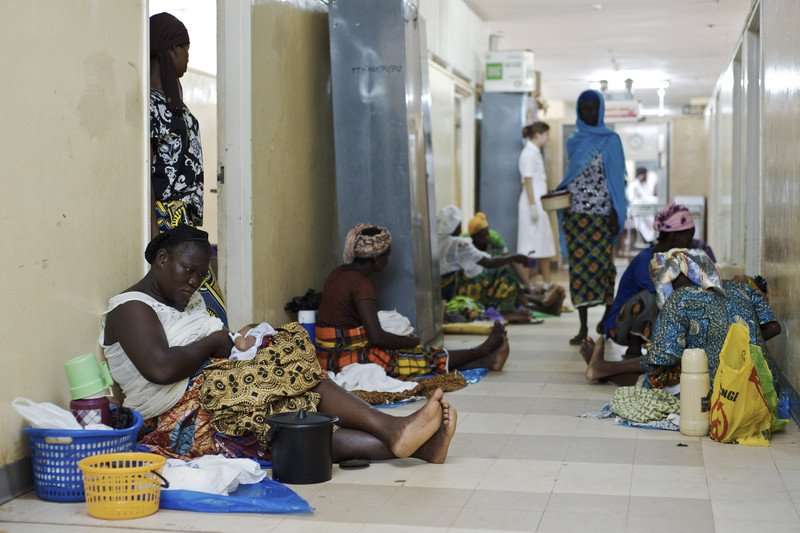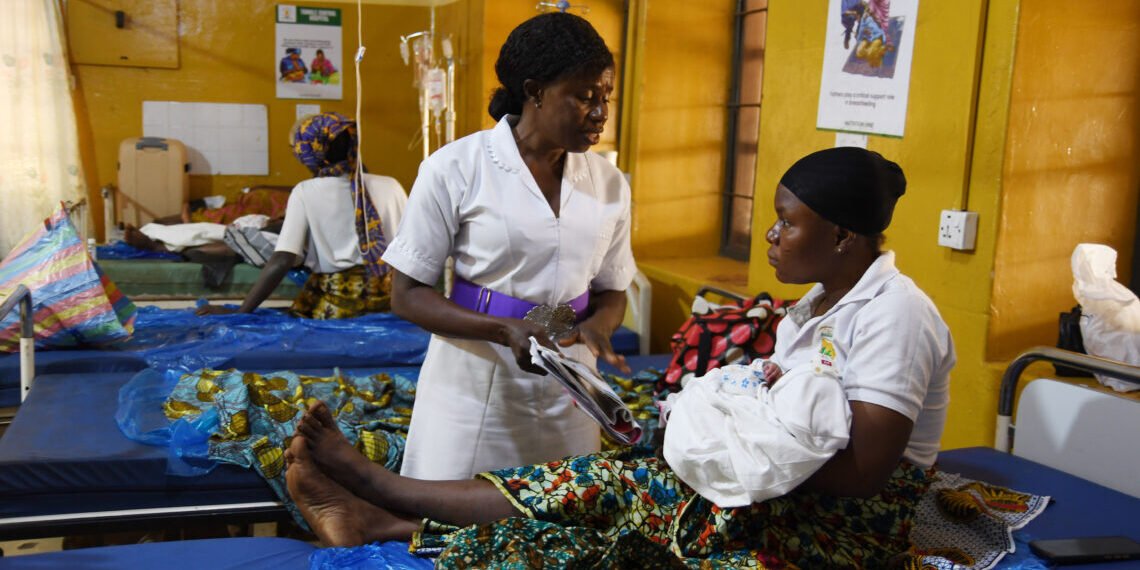With a focus on maternal health, Ghana’s Ministry of Health has joined the international community in commemorating World Health Day 2025, marked globally on April 7, under the theme “Healthy Beginnings, Hopeful Futures.”
The Ministry’s statement, signed by Health Minister Kwabena Mintah Akandoh, placed newborn survival in addition to maternal health at the heart of national health priorities, urging urgent reforms and greater investment to reverse troubling statistics.
The message is clear: Ghana is grappling with a quiet yet deadly crisis—one that endangers women and children and threatens to derail progress toward its Sustainable Development Goals (SDGs).
“The number of maternal and newborn deaths per 100,000 live births has seen an increasing trend in Ghana.
“In 2022 and 2023, women who died in health facilities due to pregnancy and childbirth-related complications increased from 102.6 to 109.3 deaths per 100,000 live births, with the Greater Accra and Ashanti regions recording higher maternal deaths.”
Ministry of Health
The statement also highlighted a troubling rise in infant mortality rates. Deaths of newborns under the age of one increased from 7.4 to 8.1 per 1,000 live births, while mortality among children under five rose from 9.8 to 10.9 per 1,000, with the highest rates reported in the northern regions of the country.
For every 1,000 live births in Ghana, “52 die before their fifth birthday, 37 before their first birthday, and 25 within the first 28 days,” the Ministry revealed.

These harrowing statistics present more than just numbers—they reflect the deep systemic gaps in Ghana’s healthcare delivery.
Even more alarming is the drop in the number of births attended by skilled health personnel, falling from “62.6% to 60.6%”
This decline, though seemingly small, has wide-reaching consequences, particularly in regions already struggling with access to adequate care.
Deaths That Should Not Happen
Furthermore, the Ministry emphasized that many of the causes and risk factors behind these deaths are preventable and must be addressed through deliberate action.
It underscored that eliminating preventable maternal and newborn deaths is not a choice but a necessity for meeting both national and global development goals.
As the statement noted, Ghana has committed under the SDGs to reduce maternal deaths to “70 per 100,000 live births” and neonatal deaths to “12 per 100,000 live births” by 2030.

With the current trends, those goals are dangerously out of reach unless drastic action is taken.
“Guided by our National Essential Health Services Benefit Package 2022-2030 and Reproductive, Maternal, Newborn, Child and Adolescent Health and Nutrition Strategic Plan 2020-2025, the Ministry and its stakeholders are implementing key interventions aimed at strengthening maternal and newborn care across all levels of the healthcare system.”
Ministry of Health
Accordingly, the Ministry noted that significant efforts are ongoing to strengthen maternal health services across the country.
These include expanding access to counselling and screening for genetic and high-risk pregnancy conditions such as sickle cell disease, HIV, diabetes, and hypertension.
Additionally, there is a concerted push to increase the availability of skilled birth attendants and enhance emergency obstetric and newborn care services.
The Ministry also highlighted the importance of integrating mental health support, noncommunicable disease management, and family planning into maternal healthcare.
It emphasized the need to promote respectful maternity care and empower women to make informed decisions about their reproductive health, viewing these measures as critical to improving outcomes and protecting maternal and child well-being.
The role of frontline workers and health professionals was also acknowledged, with the Ministry pledging to “strengthen the capacity of health workers and frontline providers” and ensure a “continuum of care from pregnancy through childbirth and the postnatal period.”
Government Must Turn Words Into Action
The Ministry praised initiatives like the Ghana Medical Care Trust Fund (“MahamaCares”) and the Free Primary Healthcare policy as evidence of government commitment to health equity.
According to the statement, these interventions aim to guarantee that “no Ghanaian is denied basic and essential health services due to cost.”

However, the Ministry indicated that this is not just about programs—it’s about prioritizing the lives of women and children who continue to face unnecessary and preventable risks.
“These initiatives affirm our resolve that ‘healthy beginnings’ must be safeguarded not only at birth but throughout the life course and that ‘hopeful futures’ are not undermined by preventable complications or catastrophic out-of-pocket expenses caused by chronic diseases.”
Ministry of Health
On this World Health Day, the Ministry called for collective action. Communities must embrace early health-seeking behaviors, and all stakeholders—government, civil society, partners, and the private sector—must “renew commitment and investment in maternal and newborn health.”
The Ministry concluded by calling for the “empowerment of women and families through access to accurate information, respectful care, and protection of their rights and dignity.”
It also emphasized the importance of “improvement in care for small and sick newborns” and called for “collaboration to address health system gaps and support frontline workers.”
Ultimately, Ghana’s maternal health challenge is a national emergency cloaked in silence. If the nation is to build hopeful futures, it must begin by securing healthy beginnings—starting with mothers and their babies.
READ ALSO: Actress Roselyn Ngissah Loses Mother























